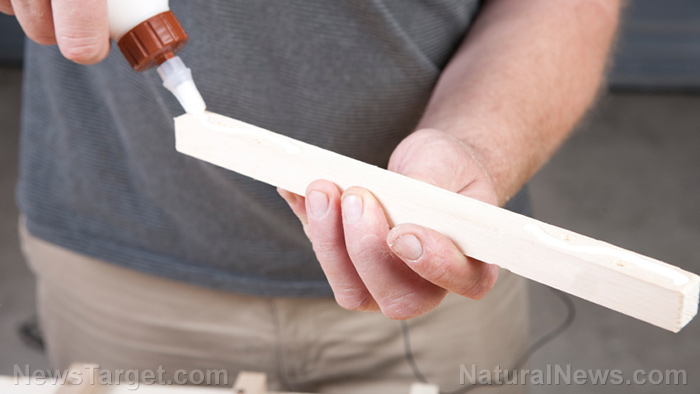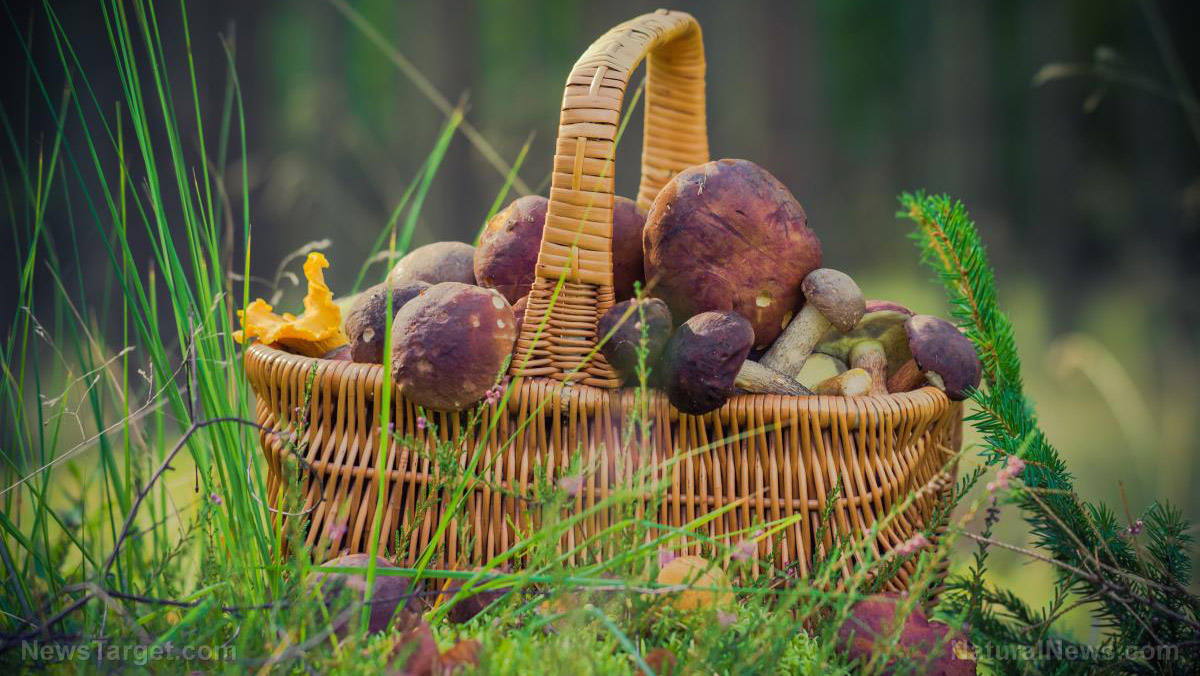 Parler
Parler Gab
Gab
The survival uses of glue
Aside from gluing materials together, adhesives can also be used to:- Reseal items that you use often
- Repair a water bottle or canteen
- Seal small holes seams in tents
- Make tents watertight
- Stop the ends of ropes and fabrics from fraying and unraveling
- Temporarily fix pipe leaks
- Repair eyeglasses
- Accelerate a fire
Alternative glues and substitutes
Below are some adhesives that you will need for small projects or minor repairs around your homestead. DAP Roof Asphalt Filler and Sealant This is a heavy-duty sealant that takes about one week to cure out, but the results are great. Use DAP Roof Asphalt Filler and Sealant for doorways and thresholds that might collect more water than you would like. Expanding Gorilla Glue Use this adhesive to fill in smaller spaces and gaps while creating a very tight bond. Expanding Gorilla Glue bonds almost all types of material and can expand to thrice its size to fill all gaps. Sand or trim excess glue once it dries. Use this glue lightly so you won’t get a lot of waste and excess expansion. Gasket sealant Gasket sealant can be used to repair engines and get a good seal on things like the head gasket on a small engine. Rebuilding head gaskets takes time, but you can do it with the right tools and sealants. JB-Weld Use JB-Weld to repair your tools and equipment like the bodies of cars. Liquid Nails Use Liquid Nails to glue down subflooring on a house or tool shed. It's the best kind of glue if you want a strong floor that doesn’t squeak. Once you nail or screws floor boards, use some Liquid Nails to create a tight bond that eliminates annoying squeaks. Loctite Loctite will glue bolts, nuts and anything that is threaded. Use different formulas and colors depending on how strong of a hold you need. Note that blue is considered removable, but the red version is for permanently gluing a nut or bolt. Shoe Goo When SHTF, use Shoe Goo to keep your shoes going a little bit longer. Shoe Goo comes in an aluminum tube with one end that has to be poked before the glue is dispensed. Unused tubes of Shoe Goo should stay shelf-stable for a long time. (Related: 25 Survival supplies you’ll need to stock up on before SHTF.) Super Glue and Single-use Super Glue Single-use Super Glues are best for small projects where you only need a little at a time instead of a whole tube or container of glue.Considerations when using glue for prepper projects
Remember that some glues work better than others on different materials and for different uses:- Epoxies are better for long-term storage than other kinds of glue. Because epoxies are activated by combining two parts rather than just being exposed to air, they are less likely to spoil in your stockpile.
- To get two items to bond stronger, use C-clamps and inexpensive carpentry clamps that can be tightened with a trigger mechanism. For bigger glue projects, use pipe clamps that offer a lot of force and can clamp wide boards together.
- Pay attention to cure and dry times. Some kinds of glue and epoxies have guidelines for dry-to-touch and total cure times.
- Temperature can also affect drying and cure times. Check the label of your adhesive and add heat or find a cool place to glue materials as needed.
- Even the strongest bonding material has limitations. Bonds will weaken over time and once various stressors are applied to them. Try to sand or rough up a surface to increase the quality of the bond before applying glue.
The end of meat? Dutch “green” policies force dairy farmer to cull 95% of his herd
By Ethan Huff // Share
Food supply 101: How to grow edible mushrooms in your home garden
By Zoey Sky // Share
Home gardening tips: How to grow and harvest radishes
By Zoey Sky // Share
Giant swarms of locusts ravage over 80% of crops and livestock feed in region of Russia
By Belle Carter // Share
Glen Canyon Dam close to shutting down as Lake Powell water levels continue to drop
By Arsenio Toledo // Share





